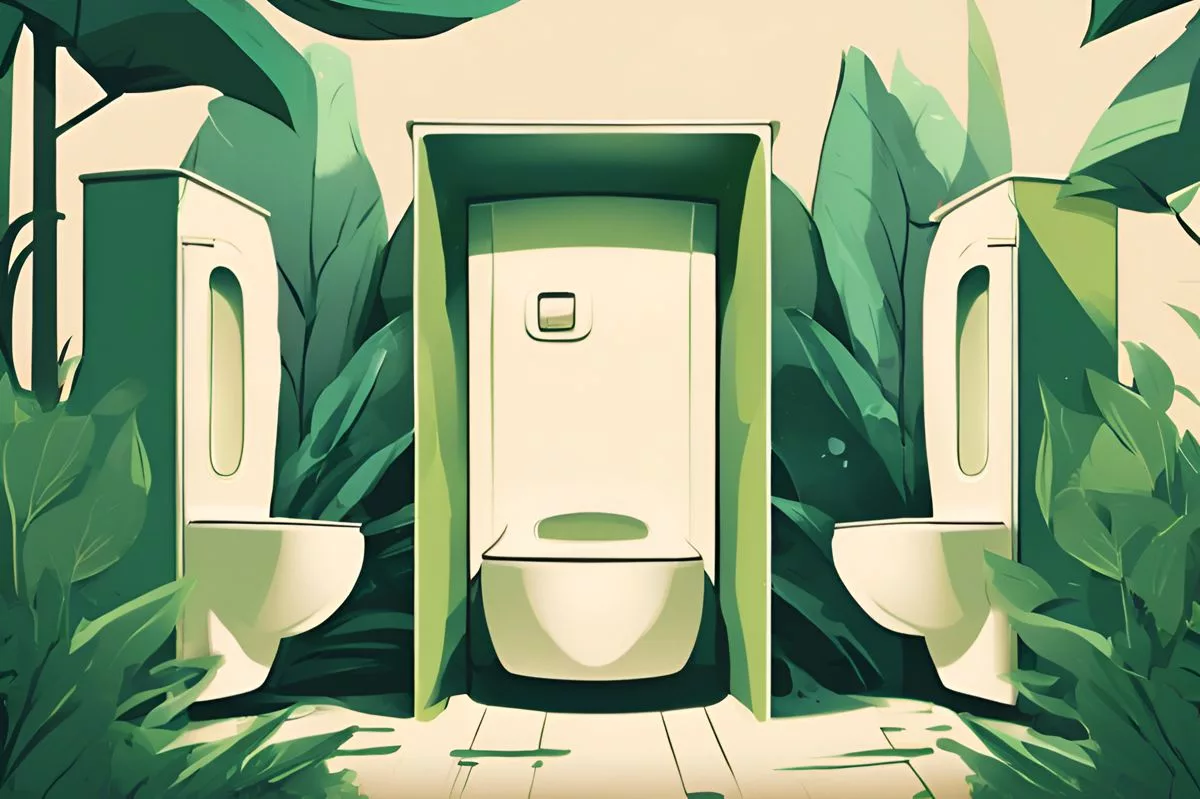The Innovative Sanitation Technology pilot project in Cape Town is a groundbreaking effort to improve toilets in five informal settlements. Launched on October 1, 2024, this initiative uses eco-friendly, non-sewered toilets to boost health and dignity for residents. With strong community involvement and support from organizations like the Bill & Melinda Gates Foundation, the project aims to tackle the sanitation challenges faced by these underserved areas. By embracing advanced technology and sustainable practices, Cape Town is paving the way for a brighter, cleaner future for its communities. This project shows how smart solutions can create hope and change lives.
What is Cape Town’s Innovative Sanitation Technology pilot project?
The Innovative Sanitation Technology pilot project in Cape Town aims to improve sanitation in five informal settlements through eco-friendly, non-sewered toilets. Launched on October 1, 2024, it focuses on community involvement, sustainable practices, and advanced technologies to enhance residents’ dignity and health.
In many parts of the world, access to clean and safe sanitation remains a privilege rather than a fundamental right. The City of Cape Town’s joint effort with the Water Research Commission (WRC) heralds a significant shift in this narrative. The launch of the Innovative Sanitation Technology pilot project on October 1, 2024, promises a new era for the residents of five informal settlements. This initiative is not just about building infrastructure; it’s a comprehensive approach that integrates technology, community involvement, and sustainable practices to enhance the quality of life.
Tackling the Challenges of Informal Settlements
Cape Town faces a daunting reality with 526 informal settlements, each varying in the degree of basic services they receive according to national standards. Many of these areas lack access to essential bulk water or sewer infrastructure, making traditional sanitation solutions impractical. The Innovative Sanitation Technology pilot project emerges as a beacon of hope, aiming to address these gaps in underserved communities.
The financial commitment from the City to improve sanitation in these informal settlements is immense, with over R414 million allocated annually. This budget supports a wide range of facilities, including 15,188 chemical toilets, 11,186 container-based toilets, 27,369 portable flush toilets, and 56 conservancy tanks. Despite these efforts, the recurring costs emphasize the pressing need for a more sustainable and long-term solution.
The Role of Strategic Partnerships and Funding
An essential element of this transformative project is the collaboration with the WRC and the substantial grant funding of R78,144,140 ($4,497,665) from the Bill & Melinda Gates Foundation. This financial support facilitates the deployment of Community Reinvented Toilets in five densely populated settlements. The primary goal is to test various sanitation technologies tailored to the unique needs of each site, with the potential for broader application beyond Cape Town.
Initial pilot sites such as Nyagatisa in Macassar and Masincedane in Strandfontein highlight the groundbreaking potential of this initiative. These locations became the first to implement non-sewered sanitation technology on September 20, 2024. Over the next three months, the Clear Enviro Loo Recirculation toilet system will be installed. This system utilizes a membrane biological reactor and ozone disinfection to treat wastewater, recycling the treated water for flushing purposes. Given the absence of bulk sewer connections in these areas, this technology is particularly effective.
Community Impact and Future Plans
Stories from residents in the pilot sites illustrate the profound impact of these sanitation innovations. The introduction of eco-friendly toilets brings more than just practical benefits; it restores a sense of dignity and health. Community engagement in the planning and implementation stages ensures that these technologies are not seen as external impositions but are integrated into the daily lives of residents.
Looking ahead, the project plans to deploy the USF NEWgenerator technology at Rasta Camp in Ocean View and OR Tambo in Khayelitsha. The Aquonic Tank will be installed in 7de Laan in Strandfontein. These choices are based on comprehensive needs analyses and site assessments conducted by the WRC, ensuring that each technology addresses specific challenges such as limited space, infrastructure constraints, and environmental impacts.
Councillor Zahid Badroodien, Mayoral Committee Member for Water and Sanitation, emphasizes that sanitation remains a top priority for the City. While the City has already provided various types of toilets in informal settlements, this project signifies a deeper commitment to innovation and sustainability. By engaging local communities and incorporating their feedback, the initiative ensures that the technologies evolve to meet the residents’ needs effectively.
Building a Sustainable Future
The backbone of this ambitious endeavor is the WRC’s South African Sanitation Technology Enterprise Programme (SASTEP). SASTEP coordinates systems, stakeholders, and resources to foster a burgeoning sanitation industry in South Africa. By supporting local innovators, sanitation entrepreneurs, and businesses, SASTEP creates synergies across the value chain. This comprehensive approach ensures the establishment of the most conducive partnerships, driving the success of the project.
Sanitation has always been more than a mere utility; it carries profound social significance. From ancient Roman aqueducts to contemporary sewage systems, each development reflects a society’s technological advancements and its commitment to public health. The Innovative Sanitation Technology pilot project stands at this intersection of history and future, representing both progress and promise.
A Vision for Equity and Environmental Harmony
In Cape Town, the legacy of apartheid continues to shape urban landscapes, making access to sanitation a matter of equity and justice. The pilot project’s eco-friendly, non-sewered toilets not only meet immediate needs but also pave the way for a more inclusive urban future.
Moreover, the environmental benefits of these new technologies cannot be overstated. Traditional sewage systems often deplete resources and damage ecosystems. In contrast, the pilot project’s focus on recycling and minimal infrastructure impact aligns with global movements towards sustainable living. This initiative echoes the ethos of the environmental art movement of the late 20th century, which sought to harmonize human activity with natural landscapes.
As the project advances, the anticipation builds around its outcomes. These results will undoubtedly inform future investments in sustainable sanitation infrastructure. However, beyond the data and metrics lies a more profound narrative—a community’s journey towards resilience and dignity. Through this pilot project, the City of Cape Town offers a model for other urban centers facing similar challenges.
In conclusion, the Innovative Sanitation Technology pilot project is more than just a municipal initiative. It exemplifies what is possible when visionary leadership, state-of-the-art technology, and community spirit come together. This project is a beacon of hope—not just for Cape Town, but for cities worldwide.
FAQ: Innovative Sanitation Technology Pilot Project in Cape Town
What is the Innovative Sanitation Technology pilot project in Cape Town?
The Innovative Sanitation Technology pilot project is an initiative aimed at improving sanitation in five informal settlements in Cape Town. Launched on October 1, 2024, the project focuses on implementing eco-friendly, non-sewered toilets to enhance residents’ dignity and health, while emphasizing community involvement and sustainable practices.
Why is this project necessary in Cape Town’s informal settlements?
Cape Town is home to 526 informal settlements, many of which lack basic sanitation services. With traditional sewer infrastructure being impractical in these areas, the pilot project addresses the urgent need for effective and sustainable sanitation solutions, aiming to improve health outcomes and overall quality of life for residents in underserved communities.
Who is funding the Innovative Sanitation Technology pilot project?
The project is primarily funded by the City of Cape Town, which allocates over R414 million annually for sanitation improvements. A significant portion of the funding, amounting to R78,144,140 ($4,497,665), comes from the Bill & Melinda Gates Foundation, facilitating the deployment of innovative toilet technologies tailored to the unique needs of each settlement.
What types of technologies are being tested in the pilot project?
The pilot project tests various eco-friendly sanitation technologies, including the Clear Enviro Loo Recirculation toilet system and the USF NEWgenerator technology. These solutions utilize advanced treatment processes like membrane biological reactors and ozone disinfection to recycle wastewater for flushing, effectively addressing the lack of conventional sewer connections in the areas served.
How is the community involved in the project?
Community engagement is a core aspect of the project. Residents are involved in the planning and implementation phases, ensuring that the technologies introduced are tailored to their needs and integrated into their daily lives. This collaborative approach helps restore dignity and fosters a sense of ownership among community members.
What is the long-term vision for sanitation in Cape Town?
The long-term vision focuses on creating sustainable and inclusive urban sanitation solutions that promote equity and environmental harmony. The Innovative Sanitation Technology pilot project aims to serve as a model for other cities facing similar challenges, highlighting the importance of combining innovative technology with community input to achieve transformative social change.









